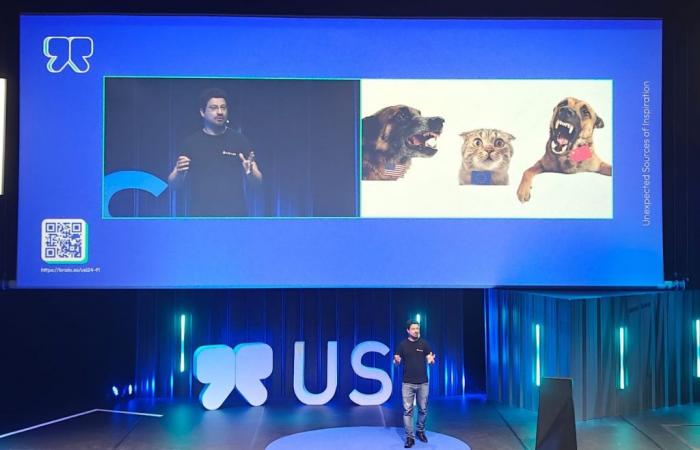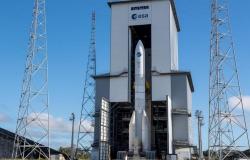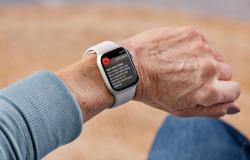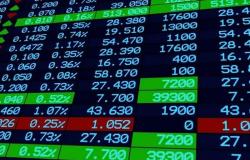
Investing massively in free software, a way for Europe to catch up in digital matters? On Monday, June 24, the USI 2024 conference took place at the Quai Branly Museum in Paris. One of the speakers was Jean-Baptiste Kempf. The president of VideoLAN (publisher of VLC) is a figure in the world of ” libre ” and of ” l’open source “If these two concepts are often misunderstood by the general public, they would nevertheless allow Europe to be more sovereign, argued the thirty-year-old, that 01net.com was able to question after his intervention.
Free software is in almost all the solutions we use today, and yet it remains the hidden and little-known child of digital technology. Why this contradiction?
I think people don’t realize how much work has already been done in the free and open source world. If it weren’t for Mozilla, there wouldn’t be the Chrome browser open source. If it weren’t for the people who made VLC, the media player with 500 million users, playing videos would cost much, much more. If it weren’t for Linux, Microsoft would be running a standardized racket on the entire planet. Free software has already a counter-power role, although it may not be visible. And s‘there was no free software, we would be even more dependent (on the software and systems of the American giants, Editor’s note).
But it is also true that free software remains very little known. In 2016, we launched a small survey for everyone who downloaded VLC media player. We asked them if they knew that it was open source and free. Positive responses occurred in 0.01% of cases. For the rest, it was: “I don’t know what that means”. People don’t ask enough questions about digital anyway. The general public tends to have a very passive consumption (of digital, editor’s note), in particular the generations under 30 years old.
So, explain to us, what is open source and free software?
Imagine, you go into a bakery and you buy a chocolate cake: that’s really the classic, proprietary software, like Word. If it’s free, open source software, not only do you get the cake, but you get the recipe to make it again. You’re also given the technical specifications of the oven, as well as the right to make the cake, modify it, and resell it. That’s exactly it. A computer program is a kind of long cooking recipe.
The idea of open source is to say, I want to give power to users. I want to allow you touse the software as you wish, to modify the cooking recipe — you have the right to redistribute it, and to redistribute your versions of the chocolate cake. Afterwards, you just have to understand that being free does not necessarily mean being free. Open source is a way of developing, it is an organizational mentality, but it is not an economic model..
Originally, open source and the free world are small communities of slightly odd people, like me, who agree on a project.
Concretely, how is this community (of developers) organized to create free software?
We use copyright, that is to say that if I join a project, I agree with the idea of the project, and I accept the license attached to it. Take for example Debian, an operating system that runs a huge number of machines in the Cloud (cloud computing, editor’s note). We’re talking about 1.9 billion lines of code, approximately 25,000 packages, 25,000 programs. This means that these are communities of communities that have contributed to Debian.
And often, most of them haven’t even worked with Debian, they’ve just written their open source, free software, which someone has then repackaged and redistributed. How does it work? First, Debian recompiles everything. Sometimes, we make mistakes, there’s a little security bug. The idea is that each packager will confirm the software, and sign it with their private key — an authentication that means: “it’s me who validated this program”. And then, there are groups of Debian developers who re-sign it (a sort of 2nd level of verification, editor’s note), a step that means that yes, the person who confirmed the software did it. Finally, there’s someone else, another community, called FTP Master, who takes the software and says, ok, this is the right version, and we can release it.
So, what happens if there is a “bad guy” (among those who code or verify, Editor’s note)? Obviously, we have thousands of Debian developers, there is bound to be one who is either really bad, or who has been caught. computer. So we do what is called “reproducible code”, that is to say that we will compile the software several times by different people, and we will then be able to check. To sum up, We trust each other, but we verify. And that works on thousands and thousands and thousands of packages.
Your presentation today at USI 2024 was entitled: Free Software as a Lever for Sovereignty. How can open source help Europe catch up in digital technology and become more sovereign?
Europe has missed the shift to the Web, social networks and the cloud. But if we want to catch up in Europe, we won’t do it without open source. We won’t do it without free software.
Because today, with the Cloud Act, the Patriot Act, we cannot say that an American company (i.e. the majority of companies offering digital services, Editor’s note) will not spy on us. Take the cloud, a sector dominated by three Americans and two Chinese without the slightest European hyperscaler. Today, we have sovereign (French) super cloud providers who deploy American IT software layers locally and who tell us: “Don’t worry, trust us, trust them”.
So not only can you not trust them, but American companies have no right to tell you that you can’t trust them, on the grounds that it’s national security. They’re going to spy on you, they have no right to say no (to spying). The Chinese, they’re a little more direct, at least, it’s a little less hypocritical. If you want to get into their Cloud, you have to give them access to everything.
Also read: The United States finally extends the FISA law by 2 years: the American secret services will be able to continue to spy on us until 2026
Which means that today, all your office automation, all your documents, they are managed in the Cloud, in American software, if your company or you yourself use the services of Google, Microsoft Azure or another American company. This means that all the wealth of all your organizations, at any time, it can be spied on.
But no, it has never happened that we negotiate industrial contracts, for example, in Defense. And that all of a sudden, the day before or two days later, before, bam! Finally, we do not conclude the contract with the Europeans, but with the Americans, because there has been a turnaround. They have better prices. I am not talking about planes, or submarines, or aluminum tubes for oil.
Free software also makes it possible to verify that on a particular software, you have not put a backdoor, a hidden door — a point that is almost impossible to verify in the case of proprietary software, without access to the source code.
Also read: A backdoor sows panic in the Linux community
More It’s not just about computer security and data theft. There, we recently had VMWare, an American company which was in a monopoly position, and which suddenly changed its prices by multiplying them by four or twelve. And IT decision-makers have no choice, they pay. When in fact, it’s virtualization technology. There is nothing incredible.
Also read: VMWare: Why are these European companies up in arms against the American company Broadcom?
And this is exactly where the risk of digital sovereignty lies. That’s how much you can trust. And the logiciel Free is one of the solutions that will allow you to, precisely, expose yourself less to these risks (interference, industrial or state espionage, disproportionate price increases, Editor’s note).
And I must say, yes, I will perhaps opt for something which will sometimes be a little less adapted, which will perhaps cost me a little more because I will need more adaptation. But in the long term, free will be more interesting for you. Until now, CIOs (information systems directors, editor’s note) are reluctant to do so, because the world of free software is, perhaps, less structured than the world of classic, proprietary software… This means that this time the migration could be much more difficult. So do we want to go? And who has the courage? Because the one who will take the risk… He is also the one who could get hit.
Me, if I am a CIO, yes, I buy Microsoft because I cannot be blamed for having made a mistake. So in fact, it is a risk culture problem which is a little too weak, and which does not exist within the administrations… So yes, there are some projects, but on the margins. However, free software should be at the heart of the strategies of companies and the State.
If you had the power to decide politically, what would you do to make free software a priority?
Some work was done, nonetheless. Circulars from the State and the Prime Minister have been published. But they were little followed. The state, in itself, should demand and enforce open formats all the time, all software developed for the state should be open source. This would allow other citizens, but also other parts of the government, to reuse them to do other things.
All administrations could also pool everything they have. Because that is important, precisely to have a sharing. At the level of the State’s IT departments, it would then be necessary to authorize that there are developers and time to devote to free software.
On the private side, CAC 40 or equivalent companies in Europe have significant financial capacities. They could come together and develop free or open source software together, or even pay companies around open source.
Another lever would be for DGIs and the general public to think about looking at alternatives to proprietary software. Because there are free or open source alternatives to almost everything. The other point is that anyone can make software. The history of VLC shows it: it is possible to work with not much. The multimedia player with 500 million users today was originally only a small project of the Centrale Paris school, which has always been maintained by four or five students per year. We need to demystify access to the software. Because from the moment we are less afraid of software, we will realize that it is not so hard (to code, to develop, Editor’s note). We will be able to master all the software used today. And we will become less slaves to the American giants.
To not miss any news from 01net, follow us on Google News and WhatsApp.





